Nan Fletcher-Lloyd
A Markov Chain Model for Identifying Changes in Daily Activity Patterns of People Living with Dementia
Jul 20, 2023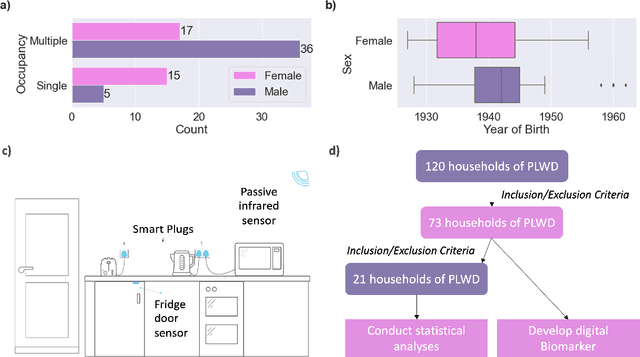
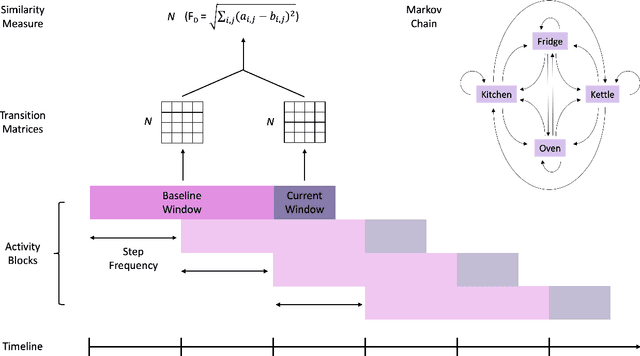
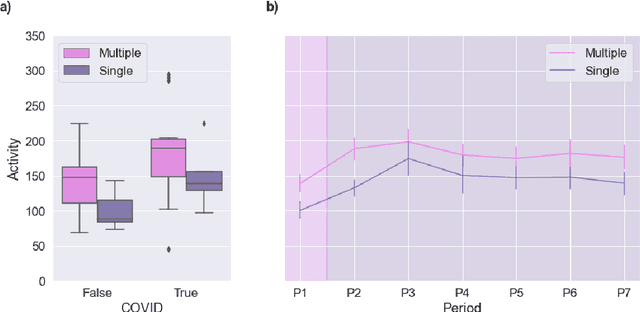
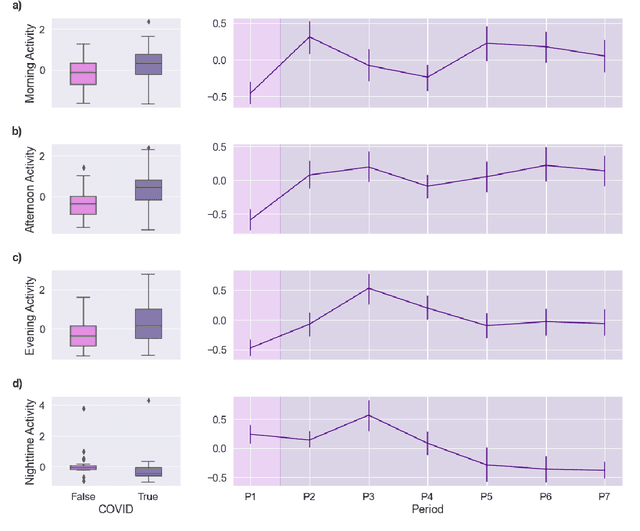
Abstract:Malnutrition and dehydration are strongly associated with increased cognitive and functional decline in people living with dementia (PLWD), as well as an increased rate of hospitalisations in comparison to their healthy counterparts. Extreme changes in eating and drinking behaviours can often lead to malnutrition and dehydration, accelerating the progression of cognitive and functional decline and resulting in a marked reduction in quality of life. Unfortunately, there are currently no established methods by which to objectively detect such changes. Here, we present the findings of an extensive quantitative analysis conducted on in-home monitoring data collected from 73 households of PLWD using Internet of Things technologies. The Coronavirus 2019 (COVID-19) pandemic has previously been shown to have dramatically altered the behavioural habits, particularly the eating and drinking habits, of PLWD. Using the COVID-19 pandemic as a natural experiment, we conducted linear mixed-effects modelling to examine changes in mean kitchen activity within a subset of 21 households of PLWD that were continuously monitored for 499 days. We report an observable increase in day-time kitchen activity and a significant decrease in night-time kitchen activity (t(147) = -2.90, p < 0.001). We further propose a novel analytical approach to detecting changes in behaviours of PLWD using Markov modelling applied to remote monitoring data as a proxy for behaviours that cannot be directly measured. Together, these results pave the way to introduce improvements into the monitoring of PLWD in naturalistic settings and for shifting from reactive to proactive care.
Designing A Clinically Applicable Deep Recurrent Model to Identify Neuropsychiatric Symptoms in People Living with Dementia Using In-Home Monitoring Data
Oct 19, 2021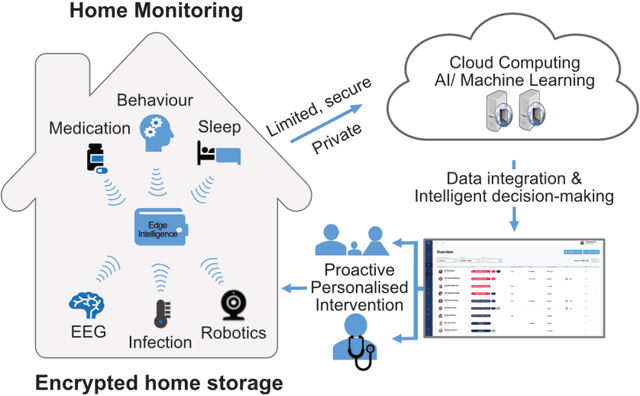
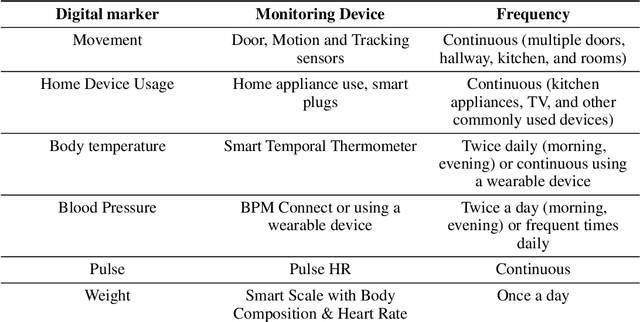

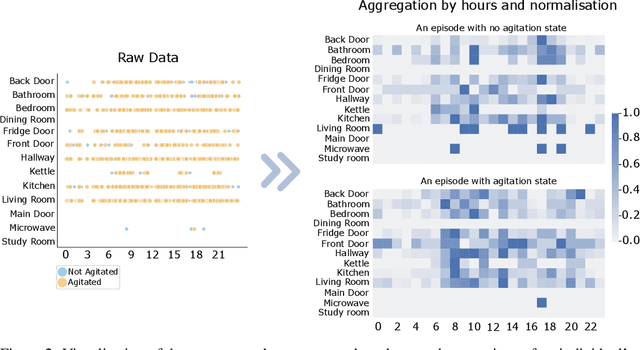
Abstract:Agitation is one of the neuropsychiatric symptoms with high prevalence in dementia which can negatively impact the Activities of Daily Living (ADL) and the independence of individuals. Detecting agitation episodes can assist in providing People Living with Dementia (PLWD) with early and timely interventions. Analysing agitation episodes will also help identify modifiable factors such as ambient temperature and sleep as possible components causing agitation in an individual. This preliminary study presents a supervised learning model to analyse the risk of agitation in PLWD using in-home monitoring data. The in-home monitoring data includes motion sensors, physiological measurements, and the use of kitchen appliances from 46 homes of PLWD between April 2019-June 2021. We apply a recurrent deep learning model to identify agitation episodes validated and recorded by a clinical monitoring team. We present the experiments to assess the efficacy of the proposed model. The proposed model achieves an average of 79.78% recall, 27.66% precision and 37.64% F1 scores when employing the optimal parameters, suggesting a good ability to recognise agitation events. We also discuss using machine learning models for analysing the behavioural patterns using continuous monitoring data and explore clinical applicability and the choices between sensitivity and specificity in-home monitoring applications.
 Add to Chrome
Add to Chrome Add to Firefox
Add to Firefox Add to Edge
Add to Edge